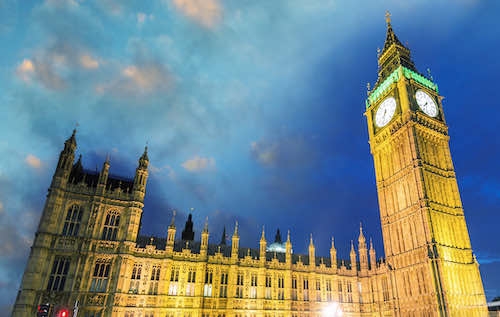MPs in the House of Commons have rejected proposals from the House of Lords to retain the State Pension Triple Lock.
Last night MPs voted against the amendment to keep the earnings link in 2022/23.
However, with MPs voting against the amendment, the unpicking of the Triple Lock is expected to go ahead to avoid an 8%+ rise in the State Pension.
The move is expected to save the Chancellor around £5bn a year.
The basic state pension is set to increase by £4.25 a week next year, from £137.60 per week to £141.85 per week, while the flat-rate state pension will rise by £5.55 a week, from £179.60 per week to £185.15 per week.
With inflation expected to hit 4%, this means retirees’ spending power could drop over the next year.
Former Pensions Minister Baroness Ros Altmann had led a last-minute revolt in the House of Lords at the start of this month against Government plans to suspend the Pensions Triple Lock for one year.
The House of Lords wanted to retain the earnings element of the Triple Lock but explore using an alternative measure that would flatten the impact of the post-lockdown spike in earnings seen in 2021, reducing the Chancellor's bill..
This could involve stripping out the impact of the Coronavirus pandemic on wages or using a smoothed earnings measure rather than the figure for the three months to July, when average earnings jumped by 8.3% - more than double the rate of inflation - as the UK economy opened up.
In the debate in the House of Commons last night, Pensions Minister Guy Opperman said it would not be possible to produce a reliable alternative earnings measure.
Baroness Altmann had launched a vehement campaign against the scrapping of the Triple Lock, saying that a 3.1% rise in the State Pension for 2022/23 would not be enough to protect pensioners against rising living costs.
She said that pensioners should, “not be used as a cash machine” by the Government to pay for spending.
Baroness Altmann also said she believed the House of Commons was not given correct information when it voted on the legislation to remove the triple lock.
Tom Selby, head of retirement policy at AJ Bell, said: “The decision to row back on a clear manifesto commitment that hits pensioners in the pocket will not have been taken lightly by the Chancellor and the Prime Minister, so it is no surprise to see the Government standing firm in the face of opposition from the House of Lords.”
The House of Lords’ proposed changes were not rejected by MPs without debate.
Stephen Timms, head of the Work and Pensions Committee, argued that even a one-year break in the Triple Lock risked long-term damage to pensioners at a time when pensioner poverty is on the rise.

